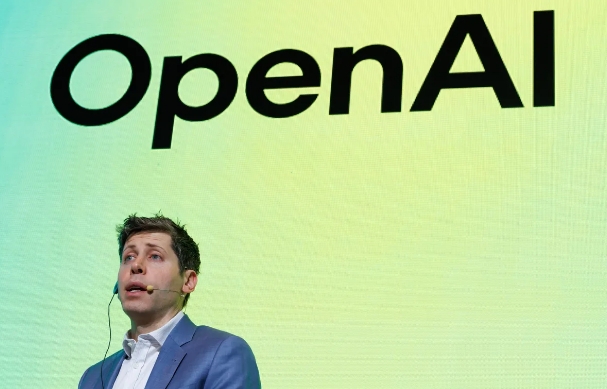OpenAI Eyes Summer Release for GPT-5 Amid Strategic Shifts and High-Stakes Negotiations
OpenAI is poised to make waves this summer with the anticipated release of GPT-5, a next-generation AI model that could redefine the landscape of artificial intelligence. In a rare glimpse into the co

OpenAI is poised to make waves this summer with the anticipated release of GPT-5, a next-generation AI model that could redefine the landscape of artificial intelligence.
In a rare glimpse into the company’s inner workings, CEO Sam Altman revealed during the inaugural episode of the OpenAI Podcast that GPT-5 is likely to debut “sometime this summer.” The podcast, hosted by former OpenAI employee Andrew Mayne, also delved into the company’s ambitious plans for artificial general intelligence (AGI), a $500 billion compute project dubbed “Stargate,” and the future of AI hardware.
Yet, as OpenAI accelerates toward these milestones, it faces mounting pressure from strategic negotiations with Microsoft and a recalibration of its data partnerships.
GPT-5: A New Era of Model Iteration
Altman’s comments on GPT-5 come at a time when OpenAI is rethinking its approach to model releases. Historically, the company has trained and released large, distinct models like GPT-3 and GPT-4. However, with advancements in “post-training” techniques, OpenAI can now continuously optimize its systems, blurring the lines between major version updates. The recent release of GPT-4o, which Altman described as a “huge leap” in performance despite not being a full version upgrade, exemplifies this shift. Looking ahead, OpenAI is considering a more streamlined naming convention—potentially GPT-5.1, 5.2, and so on—to help users track significant updates. Altman hopes this will replace the current, somewhat confusing nomenclature and provide clarity as the company prepares for the GPT-5 launch.
Central to OpenAI’s long-term vision is Project Stargate, a massive initiative aimed at overcoming the compute bottleneck that currently constrains AI development. Altman described the project as an effort to “finance and build compute at a scale that has never been done before.” While the rumored $500 billion isn’t sitting in a bank account, it represents a multi-year commitment to creating infrastructure that could make AI as ubiquitous and affordable as electricity.
Altman recently visited the first construction site in Abilene, Texas, and was struck by its scale and rapid progress. However, the project’s success hinges on complex global supply chains and international cooperation—a challenge Altman acknowledges, especially in light of past tensions with figures like Elon Musk, whom he accused of attempting to leverage government influence unfairly.
AGI and the Quest for Superintelligence
While the definition of AGI remains fluid, Altman is more focused on the concept of “superintelligence”—systems capable of autonomously discovering new science or amplifying human scientific endeavors. He believes that AI’s true value lies in its potential to accelerate scientific progress, which he sees as the key to improving human life. OpenAI’s internal tools, like Deep Research, are already aiding scientists by streamlining knowledge acquisition and analysis. For Altman, the pursuit of superintelligence is not just a technical goal but a societal imperative.
Privacy and Business Model: A Delicate Balance
User privacy remains a cornerstone of OpenAI’s ethos. Altman took a firm stance against a recent demand from The New York Times to retain user chat records as part of a copyright lawsuit, calling it “insane overreach.” On the business front, while OpenAI isn’t entirely opposed to advertising, Altman is wary of compromising user trust. He stressed that any future ads must be highly relevant and never influence the model’s outputs. For now, OpenAI prefers a subscription-based model, where users pay for premium services, ensuring a clear and trustworthy revenue stream.
Microsoft’s High-Stakes Negotiations
As OpenAI seeks to transition from its non-profit roots to a for-profit entity, its relationship with Microsoft is under strain.
Microsoft, which has invested over $13 billion in OpenAI, is prepared to walk away from negotiations if the two sides can’t agree on key terms, such as the size of Microsoft’s future stake in the restructured company. The software giant is also reluctant to renegotiate its exclusive rights to sell OpenAI’s models or its share of revenues.
If talks falter, Microsoft could fall back on its existing contract, which guarantees access to OpenAI’s technology until 2030. However, OpenAI needs Microsoft’s approval to complete its corporate overhaul and unlock further funding, including from investors like SoftBank. The outcome of these negotiations could shape the future of both companies.
Phasing Out Scale AI Amid Strategic Realignment
In another strategic move, OpenAI is phasing out its work with data-labeling startup Scale AI, following Meta’s $14.3 billion investment in Scale and the hiring of its founder, Alexandr Wang.
While Scale once played a role in OpenAI’s data needs, the company has shifted toward providers with more specialized expertise, such as Mercor, to support its advanced AI models. This decision, already in motion before Meta’s involvement, underscores OpenAI’s focus on cutting-edge capabilities like reasoning and agent-like behavior in its models.
Looking Ahead
OpenAI’s summer could be transformative, with GPT-5 on the horizon and Project Stargate laying the groundwork for unprecedented AI capabilities.
Yet, the company must navigate complex negotiations with Microsoft and carefully manage its data partnerships to maintain its trajectory. As Altman put it, the future of AI is not just about building smarter machines but about fostering a world where intelligence is as abundant as electricity—and as essential to human progress.
Disclaimer: The views in this article are from the original Creator and do not represent the views or position of Hawk Insight. The content of the article is for reference, communication and learning only, and does not constitute investment advice. If it involves copyright issues, please contact us for deletion.